HUMMEL-HUMMEL
or the intensity of memory
Guillermo Ortega Noriega, Rosi Boggiano, Huáscar Ezcurra Zoeger
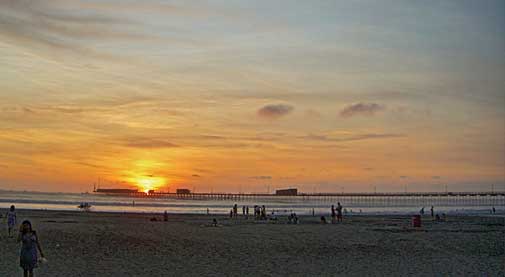
The man behind this journalistic initiative has wanted to tell this for a little over fifty years, that is to say
conduct an interview with the last two remaining personalities from the existential challenge who in the
second half of the last century went to live with a group of friends on the North coast of Peru.
Don Carlos Zoeger Silva and Don Víctor Manuel Boggiano Muro are mentally and physically active and
are true keepers of valuable information and experiences that occurred in the wide and green waters of
Pimentel Sea. Simple citizens whose only desire was to coexist with the sea on the North coast of Peru had
to endure many intense moments that, thankfully, ended well. Today they are no longer, physically, Don
Guillermo Chileno Ortega Núñez, Don Miguel Boggiano and Don Eugenio Cuchi Quiñones and the “Compaíto”. In this account they are welcomed and this message of friendship and solidarity will be
obvious to anyone reading this text.
Guillermo Ortega Noriega. Why did you decide to put the name of your boat in German, and if the definition according to your absent friend Guillermo Chileno Ortega is correct, were you mocking, ridiculing the human condition, including that of all those who once boarded the Hummel-Hummel?
Carlos Zoeger Silva. Well, at the time I was 29 years old and in order to maintain a constantly jovial spirit, being fluent in German, I knew that any German ships who arrived at the harbour wherever the boat was moored would laugh at the name.
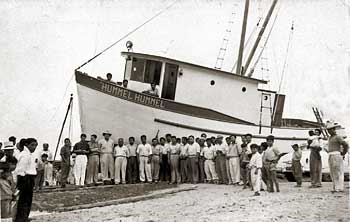 Rosi Boggiano. And why would they laugh when reading the name? Rosi Boggiano. And why would they laugh when reading the name?
C.Z.S. Back in the 1700s, there were no septic tanks and more or less every day before dawn, out on the streets of Hamburg, you would see a tall and well-built man carrying a tree trunk rested on his shoulders and neck with two large buckets, one at either end. After shouting in a deafening voice several times: “HUMMEL-HUMMEL”, the windows of the houses were opened quickly and their occupants after shouting: “MORS-MORS”, as if to say, “Yes, we are here”, approached, hurriedly, carrying other smaller full buckets in order to transfer their contents into those that the rugged teutonic collector was already carrying: On winter or summer evenings in those days faeces accumulated by the old German port. This was from citizens of all types and origins, residents or those simply passing through.
G.O.N. Don Víctor Manuel, Do you remember what the specifications of the Hummel-Hummel boat were?
Víctor Manuel Boggiano Muro. Sure, from the little that I remember, it was a long time ago, around 1950 or 1954. It was a 35 MT boat commissioned for construction by Carlos in the Curo family's shipyard in the cove of San José, and then there was the blessing, the inauguration as was customary in those days.
R.B. Growing up, I heard you tell me about the time that Don Carlos fell out of the Hummel-Hummel in high seas. How did this happen? Is it true that you saved his life?
V.M.B.M. If throwing a chewed piece of reed into the sea and looking to see where it landed in the water saved his life, then yes, but in that instance you could say that there was divine providence at work and it was just this that saved him, it wasn't his time to go – the reed was only an instrument.
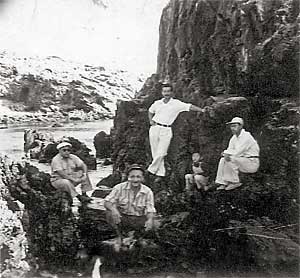 G.O.N. Who sailed on the Hummel-Hummel? G.O.N. Who sailed on the Hummel-Hummel?
C.Z.S. With me, the brothers Miguel and Víctor Manuel Boggiano Muro, my dear friend Guillermo Chileno Ortega, Eugenio Cuchi Quiñones and the guardian of the boat, an old fisherman from Pimentel, called the "Cumpaíto”, - the “Show-off” - who was an elderly gentleman. Now what truly is anecdotal is that "the crew" was almost entirely made up of "dopes". The only one with a boarding card was the “Cumpaíto”, and this your friend here, identified as crew, but not as skipper of the boat.
R.B. Where did you depart from on this trip that could have ended in great tragedy - the loss of a friend?
C.Z.S. We navigated the Lobos de Afuera islands, also known as High Island found at 90km from the Morro de Etén and 83 km. from the cove of San José to the N. 24 W., a 4.5 km. long island, 3.00 km. wide surrounded by several islets. Its geological constitution belongs to the so-called crystalline granite land, crossed by basalt dikes; 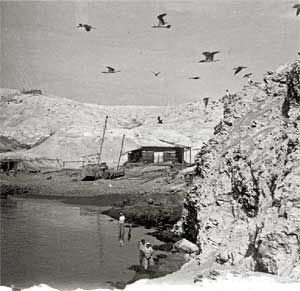 and its geographic position at its central peak has a latitude of 6° 56' 45" south and a longitude of 80° 39' 55" W.of G, the Island lacks fresh water and plenty of the famous fertiliser from the second half of the 19th century enriched Europe's agricultural farmland. Said fertiliser being the guano from the Islands, a name adopted in honour of the guanay bird, a great producer of faeces, off the coast of the department of Lambayeque, to the North of Peru. On arrival we visited señor Homero Paredes who was the guardian of the Island's guano and he invited me to visit it, after that he became my friend who together with his wife and children we were all friends on this trip. and its geographic position at its central peak has a latitude of 6° 56' 45" south and a longitude of 80° 39' 55" W.of G, the Island lacks fresh water and plenty of the famous fertiliser from the second half of the 19th century enriched Europe's agricultural farmland. Said fertiliser being the guano from the Islands, a name adopted in honour of the guanay bird, a great producer of faeces, off the coast of the department of Lambayeque, to the North of Peru. On arrival we visited señor Homero Paredes who was the guardian of the Island's guano and he invited me to visit it, after that he became my friend who together with his wife and children we were all friends on this trip.
G.O.N. Don Víctor Manuel, was the trip when Don Carlos fell in the sea the first one?
V.M.B.M. The boat had a problem, a construction fault, it rocked a lot, I would say that the stand was very high and after about four trips it cut out. I remember Scarpatti who was a mechanic wasn't on that trip... Antonio still didn't work for Carlos and at this time he was skipper of the boat.
R.B. So was this the time that the boat was lost?
C.Z.S. The Hummel-Hummel, really and truly, was never lost. The only time that this happened was after I fell overboard at sea, the boat was drifting for thirteen days, as a result of the petrol pump breaking. Desperate, the batteries and storage batteries ran out, therefore, we were on our own for eleven days due to a lack of radio communication but on the fifteenth day we were spotted from the air by don Juan Pardo de Miguel, an intrepid pilot friends with everyone. When we were drifting we had food and water to last us twenty days. The problem was whether anyone would find us in time and if the Humboldt coldwater current, so-called in honour of the German scientist that discovered it, Varón Alexander Von Humboldt, would take us to Polynesia. A coldwater current responsible for the abundance of high quality fish taken towards the Peruvian coast.
G.O.N. But the important story here is that Don Carlos fell into the sea during an earlier trip - Was this after you had arrived at the Lobos de Afuera islands?
V.M.B.M. When we left the Pimentel dock, a few hours passed, the weather changed suddenly and it became very foggy. It was in this fog that we heard the siren of another boat approaching the Hummel-Hummel. We would have been violently destroyed. Our siren, which we had recently bought, didn't work but, under intense psychological pressure, with a loosening wrench and a bit of grease we got it to sound, so, the enormous boat stopped sounding its siren and changed direction but we didn't move, we couldn't, we were stunned. Finally, we arrived at the Island. We were well received and spent a couple of days there before heading back to Pimentel…
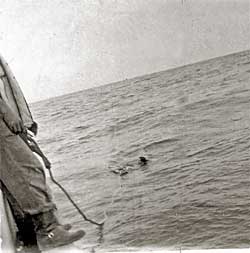 R.B. When did you fall from the boat? R.B. When did you fall from the boat?
C.Z.S. From time to time I had to wet the propeller's axle which when it heated up needed to be cooled down with seawater using a rope and bucket. Three, four, five, six times. On one of them, I slipped. I fell into the sea and no-one saw. Víctor Manuel found me in the immensity of the Pacific when I was already very tired from screaming and calling for help, the truth is that I slipped because the wood at the stern was wet due to the water falling on the nets and I was wearing rubber shoes. Mind you, I fell in the middle, that is to say some 42 kilometres from Pimentel. It was about 5.20 in the afternoon, in this zone the waves were 6 to 8 metres high and the boat had a speed of around 9.9 nautical miles/hour. Luckily, Víctor Manuel saw me within a minute, 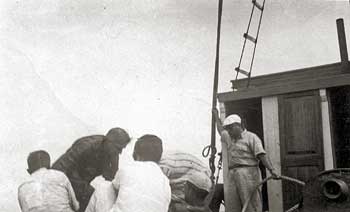 otherwise, that would have been the end. My rescue was delayed, given that once located, as "there was no driver", they started to circle me; the Cumpaíto threw planks out for me to grab hold of with my almost one hundred kilos and almost two metres in height. When the circle was smaller, I shouted to them to shut off the petrol supply so that the engine would stop and I could get closer to the boat. otherwise, that would have been the end. My rescue was delayed, given that once located, as "there was no driver", they started to circle me; the Cumpaíto threw planks out for me to grab hold of with my almost one hundred kilos and almost two metres in height. When the circle was smaller, I shouted to them to shut off the petrol supply so that the engine would stop and I could get closer to the boat.
Comment from the journalist Guillermo Ortega Noriega.
It seems to be that all things being equal certain things constructed by man himself come with a predetermined destiny which must be fulfilled regardless. The boat called Hummel-Hummel, sank years later, disappearing with its entire crew, but with the new name of Moby Dick. Lost with the boat were its owners the Gonzales Vigil brothers, from a well-known Lima family. |
 NUMBER 10
NUMBER 10
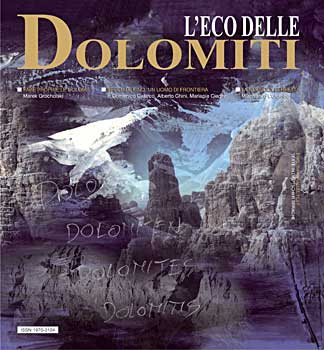



 and its geographic position at its central peak has a latitude of 6° 56' 45" south and a longitude of 80° 39' 55" W.of G, the Island lacks fresh water and plenty of the famous fertiliser from the second half of the 19th century enriched Europe's agricultural farmland. Said fertiliser being the guano from the Islands, a name adopted in honour of the guanay bird, a great producer of faeces, off the coast of the department of Lambayeque, to the North of Peru. On arrival we visited señor Homero Paredes who was the guardian of the Island's guano and he invited me to visit it, after that he became my friend who together with his wife and children we were all friends on this trip.
and its geographic position at its central peak has a latitude of 6° 56' 45" south and a longitude of 80° 39' 55" W.of G, the Island lacks fresh water and plenty of the famous fertiliser from the second half of the 19th century enriched Europe's agricultural farmland. Said fertiliser being the guano from the Islands, a name adopted in honour of the guanay bird, a great producer of faeces, off the coast of the department of Lambayeque, to the North of Peru. On arrival we visited señor Homero Paredes who was the guardian of the Island's guano and he invited me to visit it, after that he became my friend who together with his wife and children we were all friends on this trip.
 otherwise, that would have been the end. My rescue was delayed, given that once located, as "there was no driver", they started to circle me; the Cumpaíto threw planks out for me to grab hold of with my almost one hundred kilos and almost two metres in height. When the circle was smaller, I shouted to them to shut off the petrol supply so that the engine would stop and I could get closer to the boat.
otherwise, that would have been the end. My rescue was delayed, given that once located, as "there was no driver", they started to circle me; the Cumpaíto threw planks out for me to grab hold of with my almost one hundred kilos and almost two metres in height. When the circle was smaller, I shouted to them to shut off the petrol supply so that the engine would stop and I could get closer to the boat.